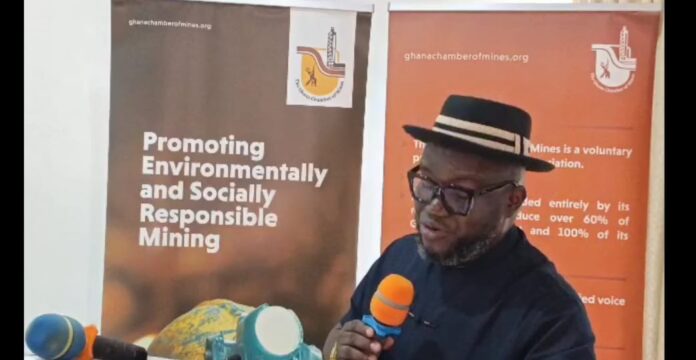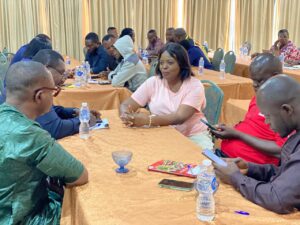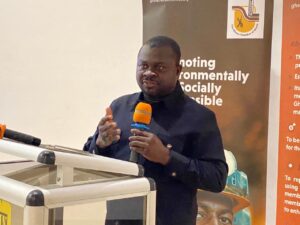The Ghana Chamber of Mines says a modern competitive and predictable legal and regulatory framework is essential if Ghana is to optimally benefit from the mining and mineral resources.
As the country reviews its Minerals and Mining Act, the main minerals industry association expects the reforms to be forward looking in terms of balancing investment attraction, sustainability and fair value retention.
Chief Executive of the Chamber, Dr. Kenneth Ashigbey, stressed the need for trans-generation equity in the mining industry, by ensuring mining for economic growth does not compromise the health of the future generation and the environment.
“We need a law that attracts both foreign and local direct investment in a highly global competitive market while simultaneously ensuring that a fair share of value created remains in Ghana,” he said. “Without a competitive framework that offers stability and a fair return on investment, the billions of dollars needed to discover and develop new mines will go to other jurisdictions”.
The Minerals Commission is currently conducting a comprehensive review of both the Minerals and Mining Act, 2006 (Act 703), as amended, and the Minerals and Mining Policy of 2014 to promote equity, sustainability, and shared prosperity.
Dr. Ashigbey emphasized that the media’s active involvement in this process is crucial to create a “win-win framework” for the industry.
“Your informed analysis can help the public and policy makers understand this critical balance in advocating for a revision that secures Ghana’s interest without killing the golden goose,” he told a mining-related media training workshop organized by the Ghana Chamber of Mines and the Ghana Journalists Association (GJA) in Kumasi.
“Our conversation must move beyond the simplicity of the narrative of extraction and revenue. We must delve into the complex yet profound positive stories of how mining is building a modern Ghana,” said Dr. Ashigbey.
According to him, while it is cardinal for the media to hold the industry accountable for its shortcomings, it is equally important to highlight the contributions of the mining industry to development, emphasizing that 99.4% of workers currently in the mining industry are Ghanaians.
President of the Ghana Journalists Association (GJA), Albert Kwabena Dwumfour, urged journalists to closely follow the review process to ensure the revised Act provides real solutions to the nation’s mining challenges.
He highlighted the devastating impact of illegal mining ‘galamsey’, describing it as not only an environmental hazard but a national security threat.
“Galamsey is no longer a threat to individual livelihoods but a national security threat. Chronic health conditions such as cardiovascular diseases, children born with deformities, kidney failure, and its attendant health challenges are all linked to galamsey and the use of harmful chemicals in such operations.
“Lack of political will from successive governments to walk the talk by ensuring an end to galamsey has caused a great disservice to Ghana, as several water bodies are destroyed through the illegal mining. The question is, when will Ghana see an end to this menace?” he quizzed.
Mr. Dwumfour believes understanding the intricacies of mining policy, the economic benefits and the innovative solutions being explored will make mining sustainable and environmentally friendly.
Chief Operations Officer of the Chamber of Mines, Ahmed Dasana Nantogmah, is hoping participants at the training will walk away with a renewed confidence in reporting on mining issues, stating that the Chamber remains open to collaboration, fact-sharing, and constructive critique.
“We also look forward to maintaining this partnership beyond the confines of this workshop. The Chamber remains committed to engaging the media with openness, transparency, and mutual respect,” he said.
The workshop, jointly organized by the Ghana Chamber of Mines and the GJA, is part of efforts to deepen collaboration between industry and the media in shaping a forward-looking mining sector.
Source: Kofi Adu Domfeh





